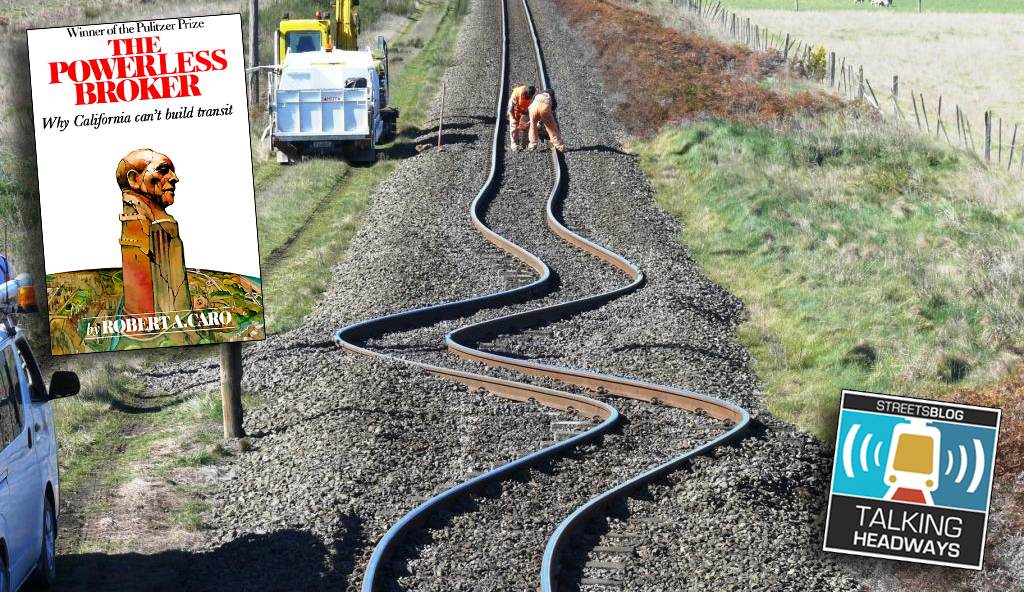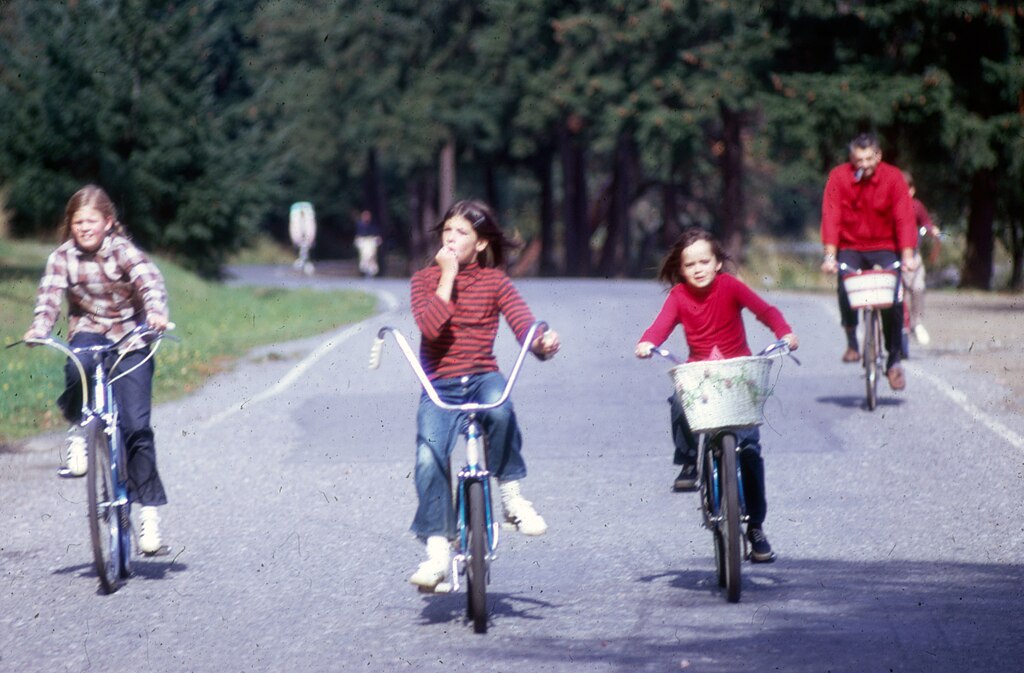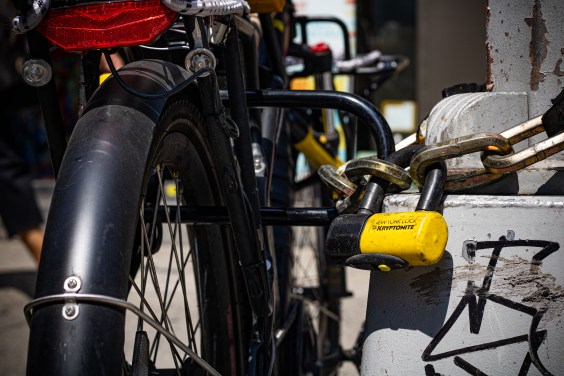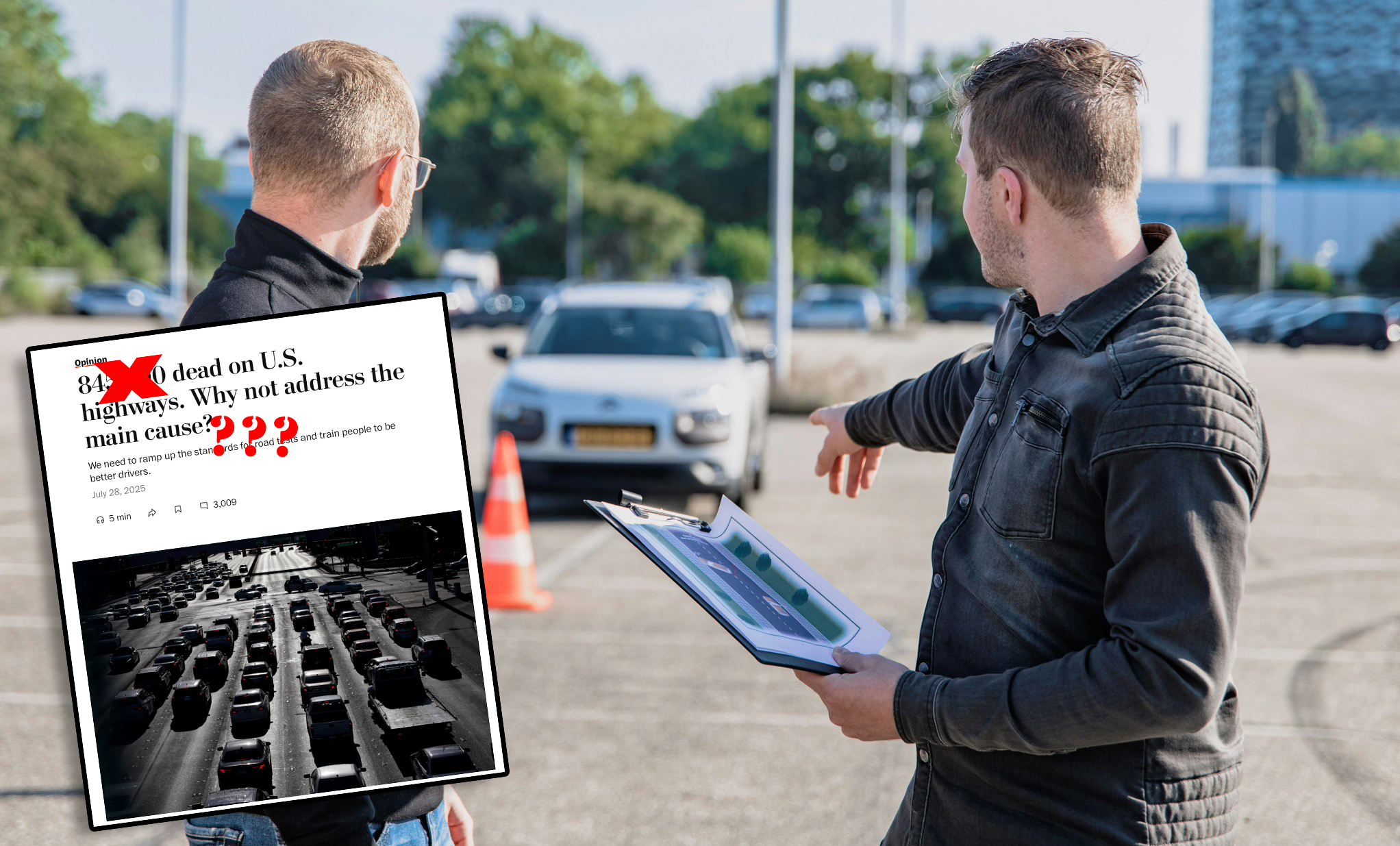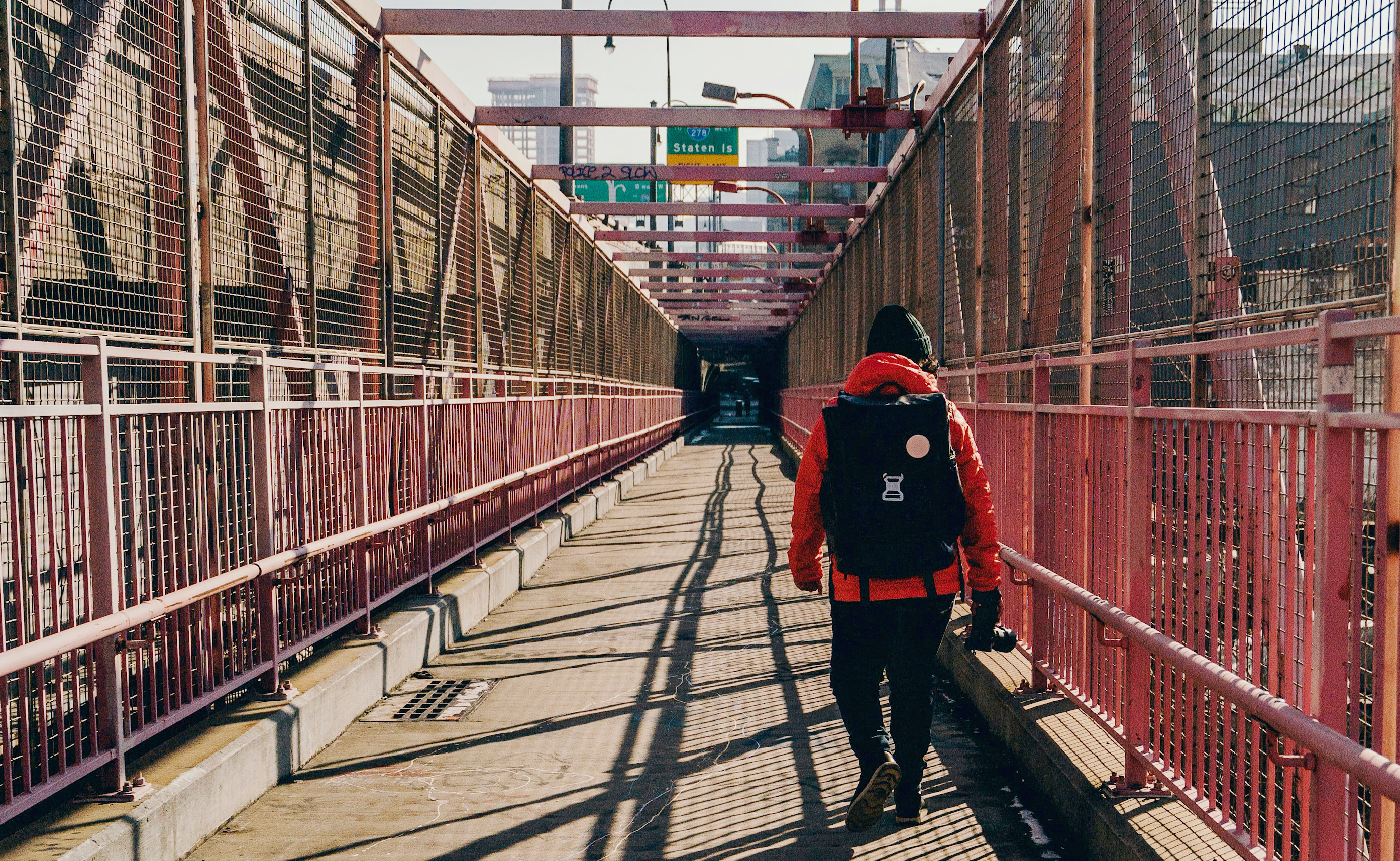Streetsblog sat down last week with Larry Hanley, the president of the Amalgamated Transit Union and member of the AFL-CIO executive council. Hanley started his career in New York as a bus driver in Brooklyn and then Staten Island, from 1978 to 1987. He became active in the local transit union and worked his way up the ranks until winning election last fall as its youngest president ever. He is known for his creative responses to attacks on the union, including attempts to privatize express bus service, and his ability to build coalitions across many sectors.
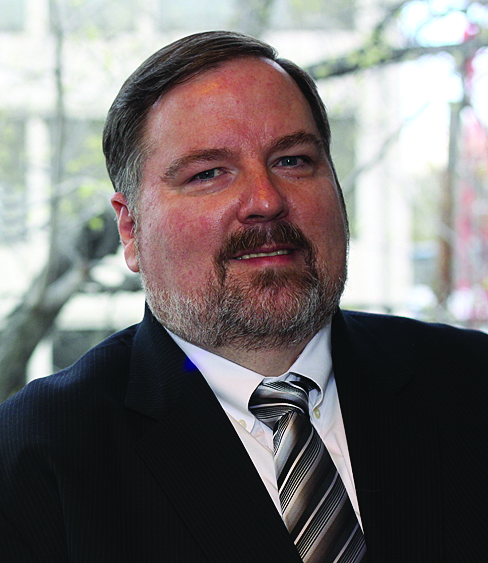
Hanley started as president of the ATU the same week I started at Streetsblog. I remember that first week, hearing excited chatter about this transit firebrand taking the helm of the union.
Below is the first installment of Streetsblog's edited interview with Hanley.
Tanya Snyder: Starting with the reauthorization: nothing is going to happen until after the recess, they’ve got this battle between two years and six years, the funding levels are miserable in either version – how do you organize your way out of this? How do you respond?
Larry Hanley: The only thing that can actually straighten out the problem is if the people – huge numbers of people – start to articulate a different vision. We need leaders to articulate a different vision and we need people to understand that were heading into a dead end financially, and we’re destroying all the things that made America a great country. And I think that we’ve been sold out by corporate interests that control the politicians.
And the only antidote to that is to try to figure out a way to mobilize the public, and we’re doing that. We’re actively ramping up our communications and trainings, and we’re providing a roadmap to our local leaders and members for how they can organize their communities around transit.
We were able to persuade the unpersuadable — people like Giuliani — because we built broad-based community support, including traditional Republican strongholds.
We don’t think that there is a short-term solution. We think Congress is so out of touch with the needs of the people who live in this country that the only remedy is to convince large numbers of people in districts to go after their members of Congress and straighten them out.
TS: You’ve been involved in coalitions at the local, regional, and national levels for a long time around transit. How have you seen them evolve? How do those coalitions compare now to when you started?
LH: The coalitions that work are the ones that can really get buy-in from non-traditional partners. There are very few places where labor unions partner, for example, with the real estate community and the Chamber of Commerce. But I found that to be a really successful formula back in New York. We were able to persuade the unpersuadable -- people like [Mayor Rudy] Giuliani, a guy who was on his own mission -- because we built broad-based community support, including traditional Republican strongholds. And we persuaded them that it was in our collective interest, that there was such a thing as a collective interest -- that’s really been taken out of the debate publicly. But when we convinced them that there was a collective interest in having better mass transit and cheaper mass transit, they pretty quickly persuaded Giuliani and [Gov. George] Pataki to support it, despite the fact that they had internal pressure in their own political circles not to.
Our goals are really mainstream, but they’re not treated that way.
TS: To some degree, you have that coalition now, at the national level. The Chamber is knocking down doors, asking for a bill and pushing for a gas tax. Is that helpful?
LH: It’s helpful in the short term. Whether or not we can sustain that in the long term is debatable. Unfortunately, the climate politically is such that whenever there’s a connected labor issue, coalitions like that can break down. We’re hoping that doesn’t happen this time. Our sense is, people arrive at that door based on their own self-interest.
TS: The people at the Chamber aren’t transit people. Do you share interests with them?
LH: We do share interests with them; the question is, who controls their political agenda? Around the country, our local unions – although the connections are not yet made – they do share interests with small business owners, people whose businesses depend upon a thriving transit system. They do have an interest in working with our union. The question is, can you convince them of that? Can you convince, first, the local leaders in our union, and the members, that those are worthy relationships?
We want to build a long-term understanding of what it means to have a thriving transit system throughout the country. And that’s not what brings all those folks to the table right now. I think it’s immediate interest, immediate fear about the economy, the interest their constituent businesses have in getting their companies back to work. We have a broader and deeper long-term agenda.
TS: You mentioned real estate and the chamber – who else should be in this coalition?
LH: Anybody who cares about global warming, the environment; who cares about the economy; who cares about the moral crisis that America faces with the war, the fact that we are engaged in bombing and killing people all over the world for oil, which we’re then using to destroy our environment; faith-based groups who have both practical concerns for their parishioners and constituent groups, but also people who have moral concerns about the way the country’s headed. Transit provides an opportunity for a very broad based coalition.
Here’s a newsletter from 1996 – this is not something I planned, but I happen to have this stuff handy – “Chamber of Commerce Coming on Board, Realtors Next” – “The Merchants Associations Support the $2 Fare Because It’s Good For the Staten Island Economy.”
We had religious groups, pastors of churches. I spoke at just about every Rotary and Kiwanis club on Staten Island. I had all kinds of happy dollars and funny things exchanged in front of me. We weren’t selling snake oil – we were selling a better economy, a better environment, a better Staten Island, so we were embraced by all kinds of people who just saw it as a good deal for their city.
We weren’t selling snake oil – we were selling a better economy, a better environment, a better Staten Island, so we were embraced by all kinds of people who just saw it as a good deal for their city.
And we also had a rider group. One of our mid-term goals is to try to organize riders. We have 100 passengers who ride our buses and trains for every one of our members. And we want to organize them.
TS: Would they be ATU members or sort of like a straphangers union?
LH: I don’t know. I just heard a story about Argentinean teachers who reshaped their union, and they don’t call it the teachers union anymore; they call it the education union. They have affiliate or auxiliary memberships for people who come in contact with the education system – parents, janitors, school bus drivers. That’s one of the things we’re discussing here, is whether we want to build an organization with membership. But whether they’re members or not, they certainly have an interest in supporting transit.
In Fall River and New Bedford, Massachusetts – this summer – we have two locals up there, and they hired an organizer to ride the buses, directly organizing riders to support public transit. That’s what we did in Staten Island. We had college students riding the buses, having people fill out postcards addressed to politicians, urging them to lower the fare and get new equipment and get bus lanes into Manhattan.
TS: So they sign the postcards, but you’re not necessarily involving them in a long-term coalition.
LH: Yes we are. We established a database. And from the database we began to mail and call for meetings. And we started to have meetings of passengers on a regular basis. And the passengers themselves began to self-organize.
So then we had bus captains, people who said ‘I want to control my bus, I’ll be in charge.’ So then whenever we had a flyer, we had a reliable network of passengers who would take 100 flyers and distribute 50 in the morning on the way to work and 50 in the evening on the way home. In this newsletter, it says we delivered 10,000 signatures to Mayor Giuliani. And when we did it, we had a press conference at City Hall, and we had a couple hundred people there. And most of them were passengers, who came on their lunch hour.
Our arguments are community-building arguments. We’re fighting downtown about whether to restore taxes to millionaires and billionaires, to the 1/10th of one percent of our society that has so much money that, if they spent the rest of their lives burning it, they could never get to the bottom of the pile. But we’re giving them tax breaks.
We’re raising the fares on the buses in Cincinnati and New York and everywhere else around the country. That’s a tax! So politicians hiding behind the notion of ‘I’m not going to raise taxes’ is ridiculous.
But we’re raising the fares on the buses in Detroit and Cleveland and Cincinnati and New York and everywhere else around the country. That’s a tax! So politicians hiding behind the notion of ‘I’m not going to raise taxes’ is ridiculous. They’re raising taxes all over the country by simply withholding funds from our systems. Their policies are forcing taxes to be increased on the people who can’t afford to pay them. That’s a regressive way to raise taxes.
TS: Let’s get back to the idea that the people who ride transit are those that are least able to pay. I wonder sometimes about the concept that “transit-dependent” people are poor – do you use that when you’re trying to connect transit with social justice and equity, or is that a harmful stereotype, that the only people who ride transit are those without other options?
LH: That’s what’s used against us politically – racism, classism, lack of concern for poor people. Down in Clayton County, Georgia last year, they eliminated all the bus service in the county. The government in Atlanta had persuaded a whole bunch of poor people to move out to Clayton County so that they could do gentrification in Atlanta, and it was OK because they had a way to get back into Atlanta to get to work, which was to take the bus. And then a minute later, they eliminated all the bus service in Clayton County. And there were people who had full time jobs, worked every day, played by the rules, and now couldn’t get to work.
And nobody thinks those people are too big to fail.
Our political society thinks it’s OK to do things like that. And it’s because the people who ride buses and trains are seen in the light that you just cast them in, with the exception of some large cities.
I was fortunate to come from a city where transit was something that everybody was involved in – rich people, poor people rode transit. People that have options ride transit because it’s a better alternative. That gets to the question of, do we provide alternatives that attract people who have other options, or do we intentionally make transit unattractive to people so they don’t ride it? So I think we have to work on different tracks: to fight and organize the people who currently ride it, but at the same time fight to improve it and increase the funding for it so it becomes available to folks who would use the option if it were not so limited.
Our conversation with Larry Hanley continued, venturing onto the prickly topic of whether union rules and labor protections hurt transit agencies by costing them more money. Stay tuned for the second half of our interview tomorrow.
